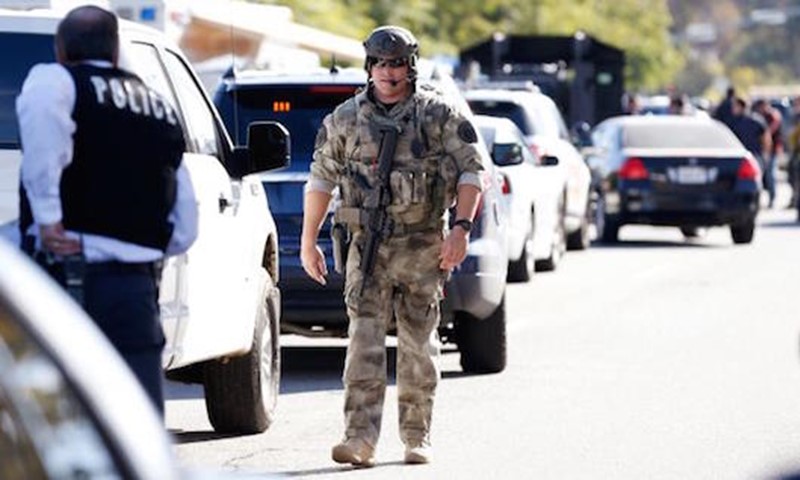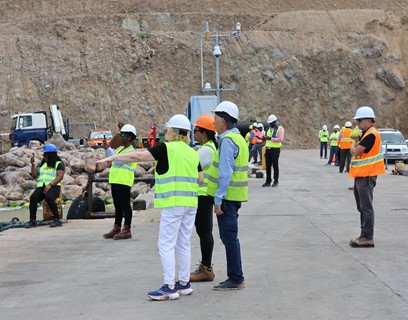
New York, NY, November 17, 2017 ― In the wake of Tuesday's school shooting in northern California wounding children, occurring on the heels of the mass shooting November 5 at a Texas church where half of the victims killed were children, and the October 31 terror attack in New York City injuring two children in a school bus, internationally known psychologist Dr. Judy Kuriansky offers advice to panicked parents on how to cope.
Kuriansky, a psychology professor at Columbia University Teachers College, is well known as "Dr. Judy” for her decades of expert advice-giving on radio and TV, and in newspapers and magazines. Kuriansky provided mental health support after the mass shooting at the Sandy Hook Elementary school in December 2012 and the 9/11 terror attacks for families at the Family Assistance Center.
"Given so many recent attacks that involved children in church, school, or on a school bus, parents are becoming increasingly panicked about their children's safety when going about their normal daily life,” says Kuriansky. Some mothers of young children have even told Kuriansky that they want to keep their children home from school, and parents of adolescents are telling their children they can't go to concerts and clubs, since those places have also been targets.
"Such feelings are normal, but cannot stop families from going about their normal life,” adds Kuriansky. "It's urgent we deal with emotions now in the immediate aftermath, since research shows the long-term effects of such traumas.”
Dr. Judy advises:
• Confront your own feelings. When children are injured or killed in attacks while going about their normal life, people naturally feel a tragedy even more strongly. Don't expose children to your own fears. Resist saying "be safe” every time children go out the door, or telling them to call you constantly while they are out, as such hyper-vigilance only heightens their own fears and insecurity. Process your feelings with adult partners and peers to avoid them spilling out on youth. Adult partners should especially accept any differences in their way of coping to prevent arguments that upset children.
• Find out what children know. Since children can be exposed to news about such attacks through social media or from schoolmates, prevent them from spreading myths and fears by talking to them about the events. To find out what they know first ask, "What did you hear about this terrible event?” Then be straightforward about the facts of what happened and ask what feelings they have. Talk calmly. Be sure to add, "Please talk to me if you have any questions or worries.”
• Reassure children about being safe. Say that you will do everything in your power to ensure that nothing happens to them, or to you. Children can develop "school phobia” – refusal to go to school – out of fear that something tragic will happen to them or to their parents if they leave home. Developmental psychology indicates this is the time to give extra comfort and confidence. Be age-appropriate. For youngsters, give more hugs, read happy-ending bedtime stories, and encourage cuddling soft toys. Reassure teens - at the normal stage of being concerned about control - that you are confident in their ability to make wise decisions about what they do and where they go.
• Direct anger where it belongs. Parents' distress and worries about their children can negatively affect their reactions, causing them to blow up at minor transgressions like not doing their homework or putting clothes away. Take your anger out on the perpetrator of the attack to avoid the psychological tendency to take out frustration, irritability or aggression on innocent others at home or work. Uncover associations to any painful past experiences since publicized attacks can trigger repressed memories of times you were a victim or mistreated, even decades ago. Get angry appropriately at those who hurt you.
• Pay particular attention to children's behavior. When kids are upset and don't express feelings verbally, bottled-up emotions manifest in behavior changes to one extreme or the other. They may become more withdrawn or more active. They might sleep or eat more or less. They might also become aggressive towards parents, peers, or teachers. Encourage them to talk about feelings underlying these behaviors. Seek professional help if the actions are extreme, or last more than several weeks.
• Protect children from prejudices and xenophobia. Profiles of perpetrators can trigger negative feelings towards groups of people. Face your own tendency to do that. Educate yourself and your children about shooters and terrorists, and why people become violent. Since it is common to call such killers "crazy people,” talk about this term with children and tell them that not all people who have mental problems are violent. "Since terrorists have been identified as Islamic religious extremists, be sure to let your children know that Muslims are peace-loving, kind people. Explain that there is such a thing as evil but that the world is full of good people,” says Kuriansky.
• Adjust to the "new normal.” Be straightforward with kids that life can seem no longer "normal” since "new” targets of attackers are "soft” - meaning adults or children rather than buildings or American symbols like the Twin Towers, and since attacks happen in the course of daily life, like at church, school or walking in the street. Yet emphasize that they still have to go about their normal life. Be honest that there is no absolute safety or perfect protection; anyone can simply be in the wrong place at the wrong time. Have fun asking them to score where they are on the psychological measure of "locus of control” - whether they are in complete control of what happens or whether everything is up to fate. The best answer is in the middle, that you do what you can but accept that destiny also plays a role. Remind kids of the wise advice of officials, to "be vigilant” and "if you see something, say something,” but also tell them to take breaks from being constantly "on guard,” to prevent stress. Reassure them that other adults are looking out for them, since authorities have averted some threats.
• Get active. Action reduces anxiety and increases a sense of control. Encourage kids to ask their teachers to talk about why people are violent and how to be prepared for emergencies in school. Take kids to memorials to share emotions with others and to feel supported by a strong community. Take action yourself, speaking to school officials and putting pressure on congressional leaders to prioritize public safety, and on social media companies to prevent abuse of technology that encourages violence.
• Talk about the meaning of life. Tell kids that it's normal to question what life is all about or to wonder whether there is a God if bad things happen to good people, but they should not lose faith. Embolden them that violent perpetrators don't win when you stay happy and get on with your daily life at school or religious centers. Tell them the story that after an attack in New York City, children and adults celebrated Halloween and enjoyed the city's weekend marathon. Teach kids an important lesson about what it means to be resilient: when you're knocked down, get back up. Violence by others is tragic but not a reason to give up on life, hope and believing in others.
Note: Dr. Judy Kuriansky, a well-known clinical psychologist, Psychology Professor at Columbia University Teachers College, and United Nations NGO representative, has provided psychosocial support after many crises worldwide. She has written about mass shootings and terrorism, including in the Middle East, documented in her book, Beyond Bullets and Bombs: Grassroots Peacebuilding between Israelis and Palestinians. She has also edited the recently released book, A New Counter-Terrorism Strategy: Why the World Failed to Stop Al-Qaeda And ISIL/ISIS And How To Defeat Terrorists Now (ABC-CLIO, 2017) by former Ambassador of Iraq to the United Nations, Hamid Al-Bayati. Contact her at DrJudyK@aol.com, her website: www.DrJudy.com, or (917) 224-5839. Ambassador Al-Bayati is also available for interviews; an expert on terrorism, he endured imprisonment, torture and assassination attempts in leading the opposition to Saddam Hussein, and had a front-row seat to counter-terrorism negotiations.


